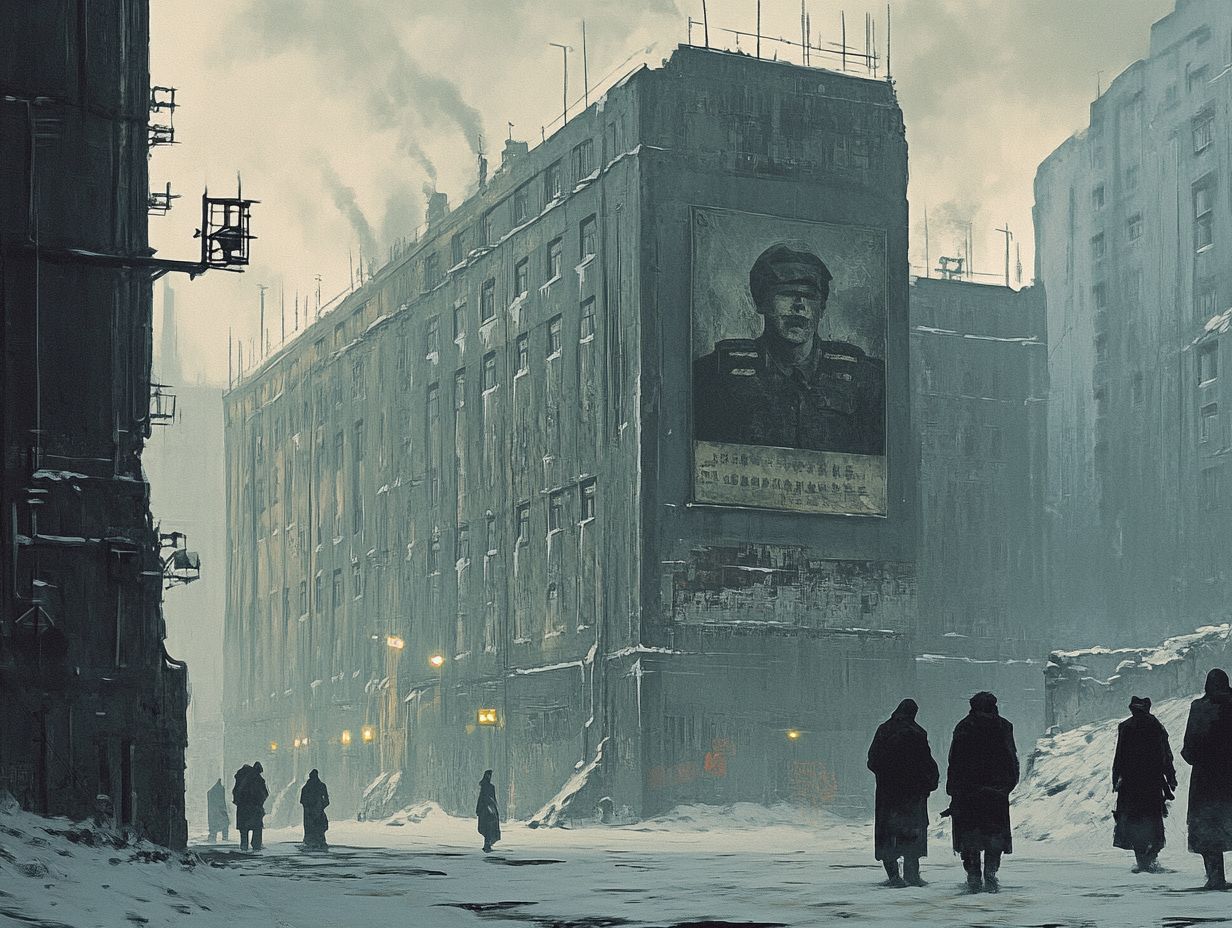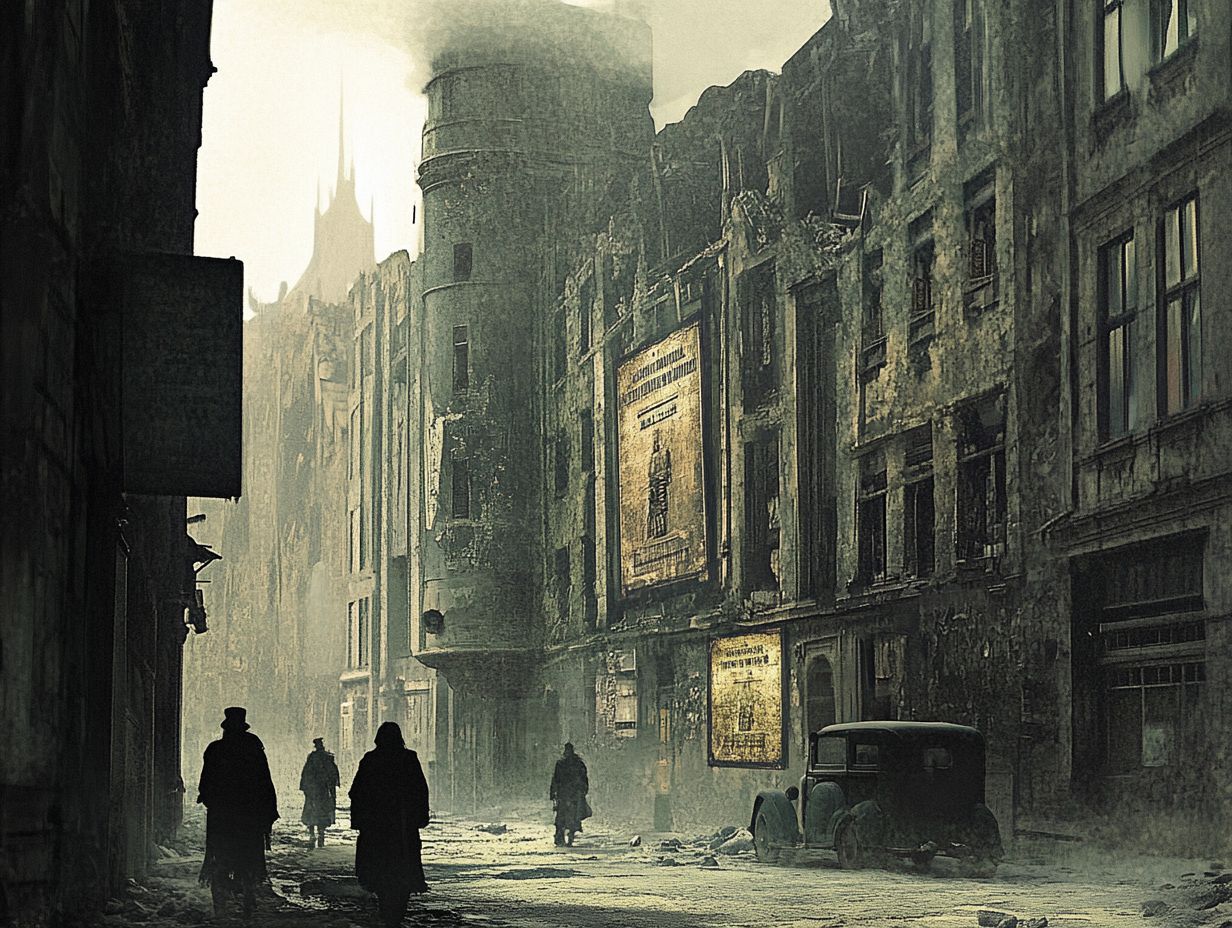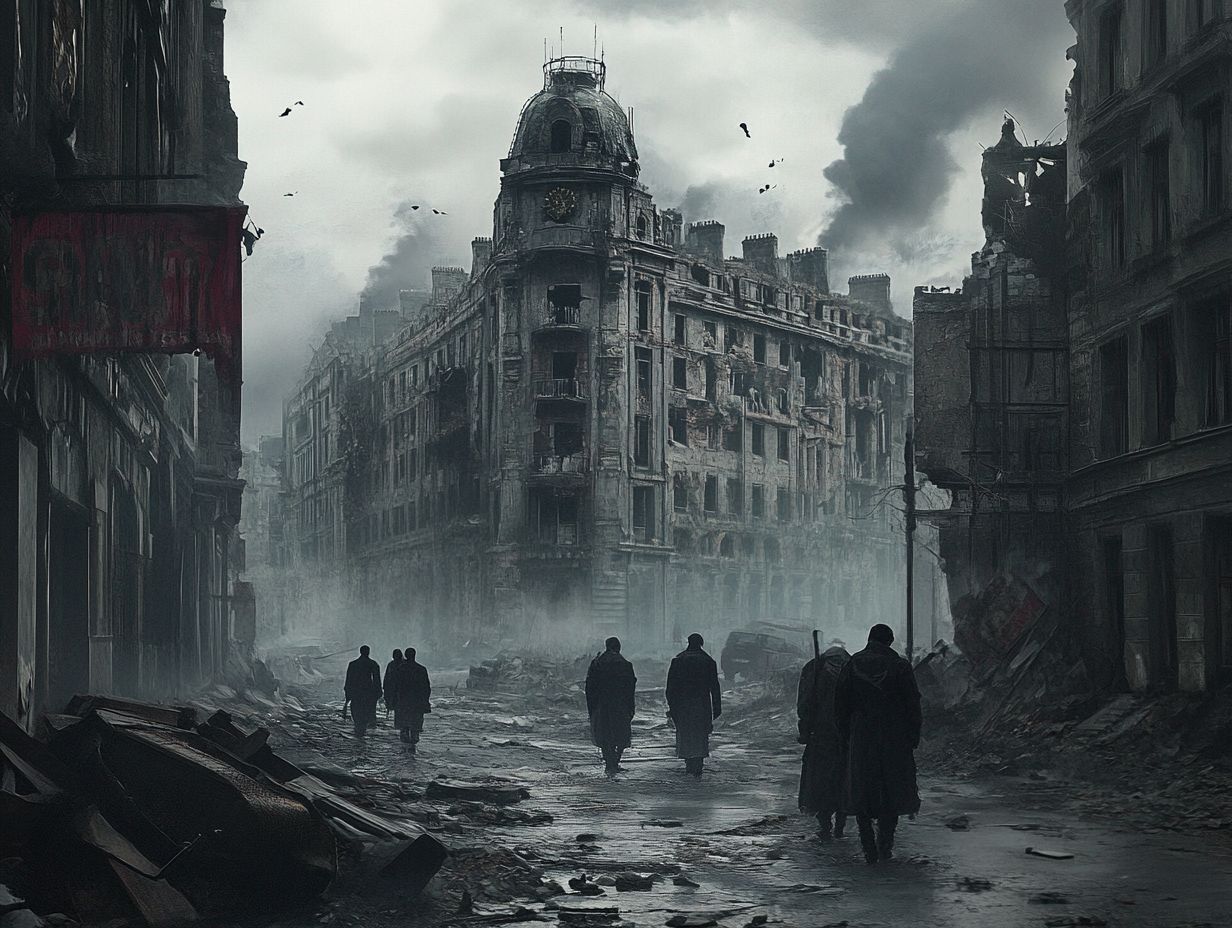Dystopia refers to a society marked by human misery, often associated with squalor, oppression, disease, and overcrowding. This concept has long been popular in literature and the arts, conjuring images of oppressive societies where despair and hopelessness prevail.
While most of us strive to avoid such environments, we may not consider the specific characteristics of dystopian settings; however, they do exist and can significantly affect the individuals living within them, as well as society at large.
This article will explore the defining features of dystopian settings, the positive and negative impacts on the human psyche, and the coping mechanisms that often emerge in response. Additionally, it will discuss how these coping strategies can be utilized to break the cycle of despair and foster a better, more equitable world.
Understanding Dystopia

The study of dystopia involves a comprehensive examination of the social structures that contribute to oppressive societies characterized by fear, social isolation, and dehumanization. Dystopian narratives serve as reflections of the human mind and highlight the psychological oppression faced by individuals within these societies.
They reveal the psychological effects of authoritarianism and the loss of personal agency, as well as the vulnerabilities of human behavior concerning conformity and oppression. Additionally, these narratives expose the moral decay of society while also showcasing the resilience of the human spirit.
Defining Characteristics and Examples
Dystopian literature explores themes such as authoritarianism, psychological manipulation, and societal collapse, often depicting frightening scenarios that provoke strong emotional reactions in oppressed individuals.
Authoritarianism: Most dystopian narratives feature oppressive governments that infringe upon personal freedoms, creating an atmosphere of fear and anxiety among the characters.
Psychological Manipulation: This anxiety manifests in various forms, including intense surveillance, propaganda, and the suppression of dissent. These elements illustrate the extent to which authorities will go to maintain their power.
Societal Collapse: Significant works of dystopian fiction reveal how such oppressive environments erode trust between individuals, leaving them devoid of community and support.
While themes of rebellion and hope also appear in dystopian literature, they highlight the psychological toll that living in such a bleak and disillusioned world has on people.
The Psychological Effects of Living in a Dystopian Society
Living in a dystopian society can have significant psychological effects, including trauma, emotional distress, and a profound identity crisis.
These challenges often result in mental health issues as individuals struggle to cope with oppressive environments and the fear of persecution.
Mental Health Impacts

Mental health effects in a dystopian setting include psychological trauma, despair, and emotional numbness, resulting from ongoing exposure to oppressive conditions and systemic oppression. Individuals living in these dystopian realities may experience heightened anxiety due to the unpredictability of their environment and a constant fear of being watched.
This anxiety often leads to increased depression, exacerbated by social isolation and a lack of available support resources. For example, in George Orwell’s ‘1984’, characters endure relentless psychological manipulation, leaving them with long-lasting psychological scars.
The long-term consequences of trauma can manifest as complex mental health issues such as PTSD, which are prevalent among survivors of totalitarian regimes forced to confront memories of violence and the loss of loved ones. In such circumstances, the struggle for survival is intertwined with the challenge of maintaining sanity, underscoring the urgent need for understanding and support.
Behavioral Changes
Behavior in oppressive environments undergoes significant changes as individuals develop coping mechanisms to navigate the pervasive fear and anxiety that often accompany such conditions. This can lead to either compliance or resistance against psychological manipulation and control.
The oppressive influence of social norms profoundly affects how people respond to oppression. For some, remaining silent may serve as a protective measure, while for others, actively resisting may provide a sense of give the power toment.
Fear, both personal and collective, often characterizes behavior under oppression, influencing group dynamics. Some individuals may conform to oppressive social norms despite violating their own moral values, while those who choose to resist may establish networks of underground solidarity as a form of opposition.
The tension between submission and resistance highlights the complexity of human behavior and decision-making when faced with the constant threat of oppression.
Factors That Contribute to a Dystopian Society
Dystopian societies arise from oppressive political and social structures that enforce authoritarianism, systemic oppression, and rigid power hierarchies, which ultimately restrict individual freedoms and autonomy.
Political and Social Structures

In dystopian societies, political and social structures often center around authoritarianism, employing social control mechanisms that enforce conformity and suppress dissent through indoctrination and groupthink. These oppressive frameworks significantly curtail individual freedoms, fostering a climate of fear and paranoia among the populace.
The psychological consequences of such systems are profound, as they can diminish critical thinking and promote a herd mentality among citizens. Historical examples, such as George Orwell’s *1984* and the totalitarian regimes of the 20th century, illustrate how the manipulation of language and history can lead to an ignorant society that ultimately loses its personal identity and moral agency.
In these contexts, the psychology of oppression is not only wielded against dissidents but also engenders a sense of complicity, making it challenging for individuals to envision alternatives to their bleak circumstances.
Environmental Factors
The influence of environmental factors on behavior in dystopian societies is often reflected in the cultural dislocation and social disintegration that intensify feelings of alienation and hopelessness among individuals.
Urban decay fosters a physically neglected environment, creating an atmosphere of despair for its inhabitants. As people navigate through crumbling buildings and abandoned neighborhoods, they are continually reminded of a past characterized by community and stability, which reinforces their feelings of isolation and alienation.
Oppressive landscapes filled with surveillance and societal control generate conditions where individual expression is suppressed. This environment pressures individuals to conform, further obstructing the possibility of connection and community.
The relationship between the physical environment and emotional response is evident in the increased aggression or withdrawal displayed by individuals, illustrating how environmental contexts can shape behaviors and ultimately alter the very fabric of society.
Coping Mechanisms in a Dystopian Society
Coping mechanisms in a dystopian society are adaptive strategies that individuals employ to manage emotional distress and foster resilience. These techniques help individuals endure the harsh realities of a world characterized by systemic oppression and fear.
Adaptation and Resistance

Adaptation and resistance play crucial roles in coping with a dystopian society, as individuals tap into their survival instincts and psychological resilience to navigate oppressive situations. People often find themselves balancing precariously between succumbing to overwhelming forces and standing up against them.
Within this struggle, one may encounter stories of individuals who, despite being crushed under the heavy boot of tyranny, choose to resist. One such story is that of a young woman who uses her art to speak out against the regime, embedding messages of resistance and hope into works that she knows will be seen by the public.
Others may adopt more subtle forms of resistance, gathering in secret to share stories of defiance that strengthen communal bonds. These narratives illustrate the complex interplay between adapting for survival and resisting for a better future, highlighting the various paths individuals may take along that spectrum.
Breaking the Cycle of Dystopia
The cycle of dystopia can be interrupted by promoting social justice that highlights resilience theory and implements coping strategies, fostering both individual and community agency.
Steps Towards a Better Society
Social commentary that explores moral ambiguity and the significance of cultural studies examining oppression and the complexities of human behavior must be encouraged to foster a better society. This approach will help individuals become more aware of ethical issues and the necessity for change.
It is essential to educate children in critical thinking so they can identify and challenge the oppressive structures that perpetuate injustice. Raising awareness of critical issues such as inequality, discrimination, and environmental degradation will facilitate dialogue and inspire communities to engage in collective action toward shared goals.
Individuals must demonstrate resilience, becoming advocates for their causes and using their voices to passionately fight for change. By collectively embracing and engaging with these issues, society can move toward a more equitable and promising future.


